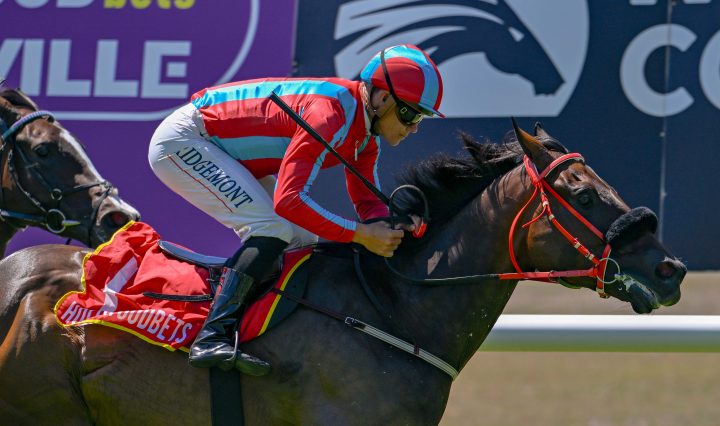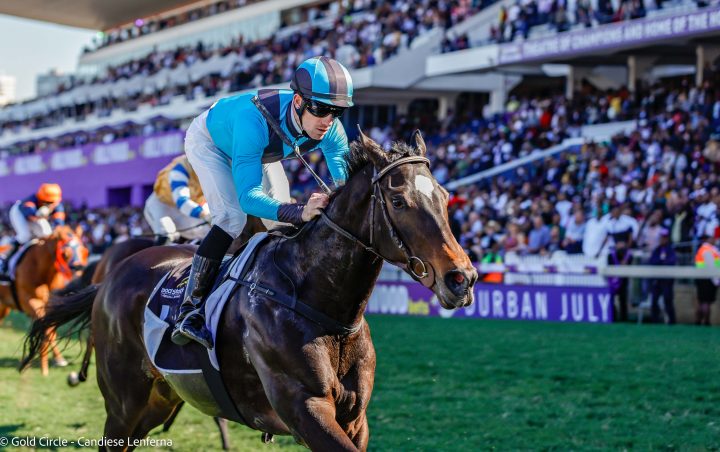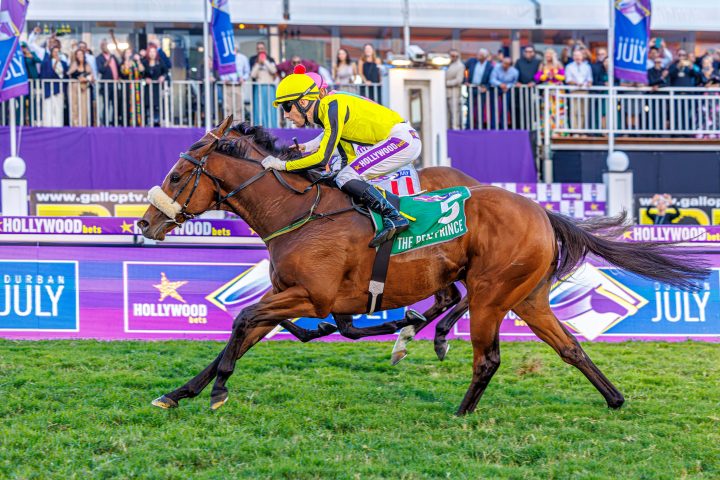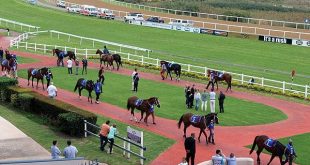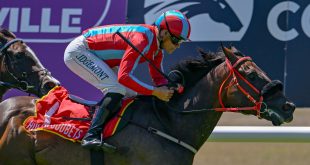David Thiselton
The Hollywoodbets Durban July conditions have been finalised and the final field panellists might be in for an interesting evening before the Final Field And Barrier Draw Ceremony, whilst the three-year-olds look to be on the back foot at present.
There will be a longer handicap this year with a 10kg spread in the weights from a topweight of 62kg down to a bottom weight of 52kg.
Furthermore, it will just be a straight handicap, unlike recent July conditions in which there was a maximum and minimum weight for certain age groups and genders.
If the final field happens to have a spread that is less than 10kg, the topweight will still be 62kg. If, for example, there is a weight spread of 7kg among the entries, then the bottom weight will be 55kg.
If the topweights are scratched after the setting of the weights, then the new topweight will be dragged up to 62kg. For example if the topweight after scratchings is 60,5kg, it will be dragged up to 62kg and after the rest of the field have been dragged up the bottom weight will become 53,5kg.
The final field will not necessarily be chosen by merit rating order.
Justin Vermaak, Executive Racing and Bloodstock of Race Coast, said, “There will be a final field selection panel like before and merit rating will be a leading aspect, but the panel will also take current form and distance suitability into account etc.”
In recent years the final field panellists have not had it too tough as the field was cut up before the final field announcement, with a lot of horses being scratched due to the recognition by the connections they do not have much chance, either due to the weights not favouring them or due to them being off form – the final declaration fee could have, in those cases, been considered a waste of money.
However, with the longer handicap, there are going to be more horses who still have form chances on paper.
Looking at last year’s July for example, third-placed Selukwe was rated 111 and had to carry 54kg due to the condition that the minimum weight for an older male was 54kg. He was thus 2kg under sufferance with the 127-rated topweights, both older horses, and he was 4kg under sufferance with the officially best weighted horse, the 129 rated (nett 125-rated) Eight On Eighteen, who was set to carry 57kg despite being the highest merit rated horse in the race due to a condition that three-year-old males could not carry more than 57kg.
In last year’s race Oriental Charm carried 60kg, Eight On Eighteen carried 57kg and Selukwe carried 54kg.
Under this year’s conditions the weights for those three horses would have been: Oriental Charm 62kg, Eight On Eighteen 61kg and Selukwe 54kg. Selukwe would have been 2kg and 4kg better off with Oriental Charm and Eight On Eighteen respectively under today’s conditions.
He would have been 2kg better off with the winner The Real Prince too and, on paper, would have been beaten 0,30 lengths instead of by 2,65 lengths.
There could theoretically have been a horse who would have been even more favoured by today’s conditions than the 111-rated Selukwe example.
Using last year’s race under today’s conditions, an older horse who had been rated 107 would sneak into the handicap under today’s conditions.
A 107-rated older horse last year would have had to carry 54kg, 6kg less than the topweight, but under today’s conditions it would have only had to carry 52kg, which would be 10kg less than the 62kg topweight.
Therefore, there are theoretically going be a lot more horses standing their ground at the time of the final field selection process this year, because a lot more of them will have chances of winning on paper than would have been the case under the old conditions.
Furthermore, with stakes of R10 million up for grabs there will be less cases of horses being scratched due to the connections deeming them to be off form. They might still want to take their chances.
The difficulty for the panel will come in deciding whether a lower rated horse is deemed to have better recent form or better distance suitability than a higher rated horse.
For argument sakes let’s assume that we go back to last year and there are still many horses standing their ground until the bitter end. After the top 17 are selected, according to the last log and current form, let’s assume the next two horses are the 115-rated Madison Valley and the 120-rated The Real Prince.
The Real Prince is rated five points higher than Madison Valley, but he has never run a race beyond 1600m before.
Madison Valley on the other hand finished a close fourth in the Betway Summer Cup over 2000m and in his final run before the July he won the traditional July pointer, the Hollywoodbets Dolphins Cup Trial over 1800m.
Which one are they going to put in the all important 18th slot?
Such a scenario is going to have much more chance of happening this year.
Although it has been said that weight avoidance tactics are going to be used this year, those who do take that route are probably going to run a bigger risk of not qualifying than ever before.
Now on to the three-year-olds.
Eight On Eighteen was held in high regard last year and came into the race 2kg well-in, according to official merit ratings, and yet he was not able to win the race.
Under today’s conditions he would have had to carry 61kg, effectively 2kg more.
So it was tough last year for a top, top three-year-old who was favoured by the old conditions.
How tough will it be for good-but-not-great three-year-olds under the new conditions, considering there is no maximum weight for them and no minimum weight for older horses?
Likewise it will be tough for females.
Furthermore, this year’s three-year-old crop are arguably overrated off their current merit ratings.
For example, Gauteng Guineas runner up Grand Empire could not win the Wolf Power 1600 against older horses when 2kg under sufferance off a 102 merit rating (effectively a 106 merit rating), yet he is now rated 120. There will be cries of “but the handicapper is clueless” when looking at that, but those who do say that are clueless themselves, because the handicapper rates a race on that race, not on past races, and Tin Pan Alley had earned his 117 rating by beating older horses and Grand Empire had then beaten him. Furthermore, Grand Empire was likely not at his peak for the Wolf Power with the Triple crown series looming.
Nevertheless, the overall impression is the current three-year-old male crop is not shining and it is questionable whether any of them have properly earned a rating of 120 or above.
It could well be an older horse July, but on the other hand there is an impressive unexposed horse like Note To Self among the three-year-olds and more such types might emerge.
The build up to this year’s Hollywoodbets Durban July is going to be more intriguing than ever!

